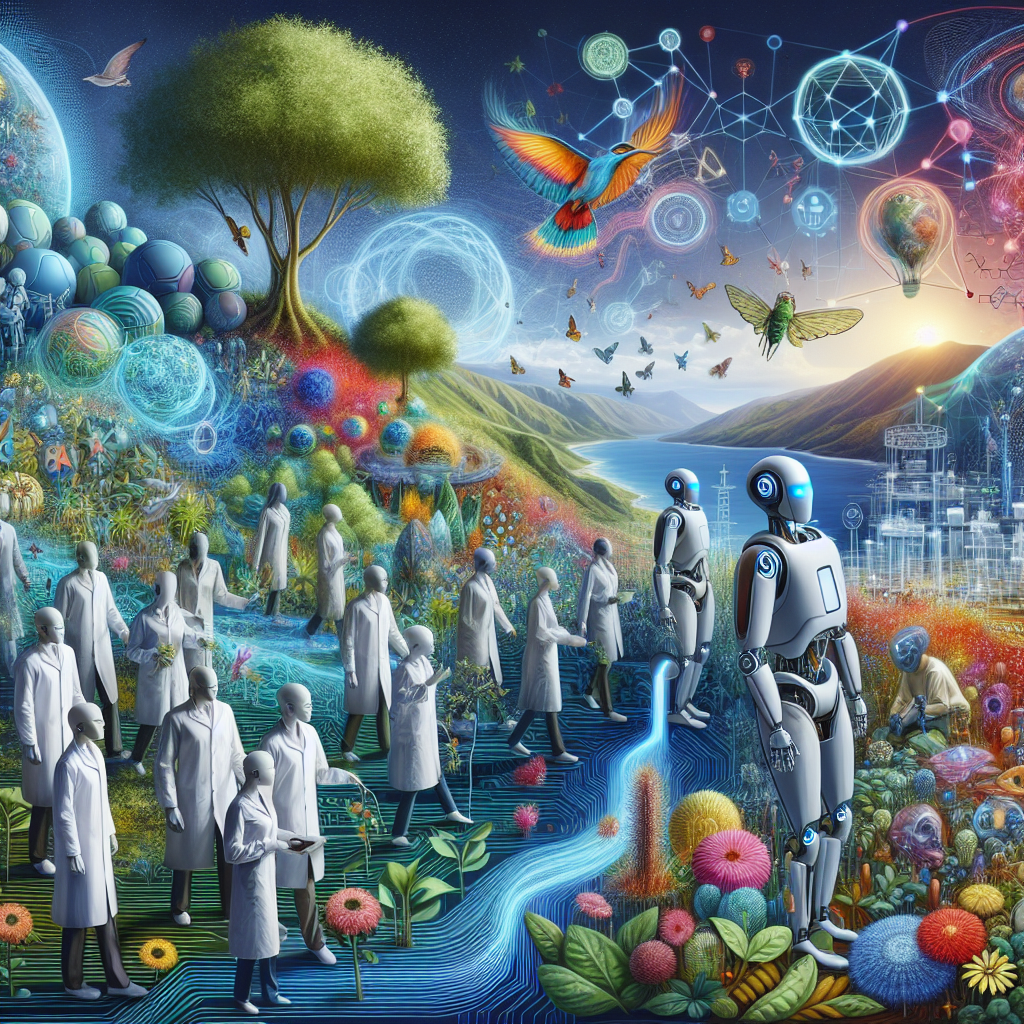
Artificial intelligence (AI) is advancing at an unprecedented pace, reshaping various aspects of our lives and industries. As we look ahead to the next decade, the potential of AI promises even more transformative changes. Here’s a glimpse into how AI might evolve and impact our world over the next ten years:
1. Enhanced Personal Assistants
AI-powered personal assistants will become even more integrated into our daily routines, evolving from simple voice-activated devices to highly sophisticated digital companions.
- Proactive Assistance: Future AI assistants will anticipate needs, offer proactive suggestions, and manage complex tasks with minimal human input.
- Emotional Intelligence: These assistants will develop greater emotional intelligence, enabling more natural and empathetic interactions.
- Multilingual Capabilities: Improved language processing will allow seamless communication across different languages, breaking down language barriers.
2. Advanced Healthcare Solutions
AI's role in healthcare will expand, revolutionizing diagnostics, treatment, and patient care.
- Predictive Analytics: AI will predict diseases before they manifest by analyzing genetic information and lifestyle data, allowing for personalized preventive measures.
- Robotic Surgery: Enhanced precision and decision-making in robotic surgery will lead to minimally invasive procedures with faster recovery times.
- Virtual Health Assistants: AI will monitor patients' health in real-time, providing alerts for medical attention and managing chronic conditions more effectively.
3. Autonomous Transportation
The transportation industry will undergo significant changes as AI drives the development of autonomous vehicles.
- Self-Driving Cars: Fully autonomous vehicles will become common, reducing accidents and optimizing traffic flow.
- Urban Mobility: AI will facilitate smart urban transportation systems, including autonomous public transit and efficient ride-sharing services.
- Logistics and Delivery: Drones and autonomous trucks will streamline logistics and delivery services, making them faster and more cost-effective.
4. Smart Cities
AI will be at the heart of smart city initiatives, enhancing urban living through intelligent infrastructure.
- Energy Management: AI will optimize energy consumption, integrating renewable energy sources and improving grid efficiency.
- Public Safety: Advanced surveillance and monitoring systems will enhance public safety by predicting and preventing crime.
- Resource Management: AI will manage resources like water and waste, ensuring sustainable and efficient urban environments.
5. Workplace Transformation
The workplace will continue to evolve with AI, changing how we work and the nature of jobs.
- Automation of Routine Tasks: AI will automate repetitive tasks, allowing employees to focus on creative and strategic work.
- Collaboration Tools: Enhanced collaboration tools will facilitate remote work, making global teams more effective.
- Job Evolution: New job roles will emerge, requiring skills in AI management and collaboration with AI systems.
6. Education and Learning
AI will transform education, making learning more personalized and accessible.
- Adaptive Learning: AI-driven educational platforms will adapt to individual learning styles and paces, providing customized learning experiences.
- Virtual Classrooms: Enhanced virtual reality (VR) and augmented reality (AR) technologies will create immersive learning environments.
- Skill Development: Continuous AI-driven assessments will help individuals identify and develop the skills needed for future job markets.
7. Ethical and Regulatory Frameworks
As AI becomes more pervasive, ethical considerations and regulatory frameworks will be crucial.
- Ethical AI Development: Efforts to ensure AI is developed and used ethically, avoiding biases and respecting privacy, will intensify.
- Regulation and Governance: Governments and organizations will establish regulations to oversee AI development and deployment, ensuring safety and fairness.
- Transparency and Accountability: Increased emphasis on transparency in AI algorithms and accountability for AI-driven decisions will be essential.
Conclusion
The next ten years will witness AI becoming even more integral to our lives, driving advancements across various sectors. As AI continues to evolve, it will bring about significant improvements in efficiency, convenience, and quality of life, while also presenting new challenges that will require careful management and ethical considerations. The future of AI holds immense promise, and its responsible development will shape a better world for all.





